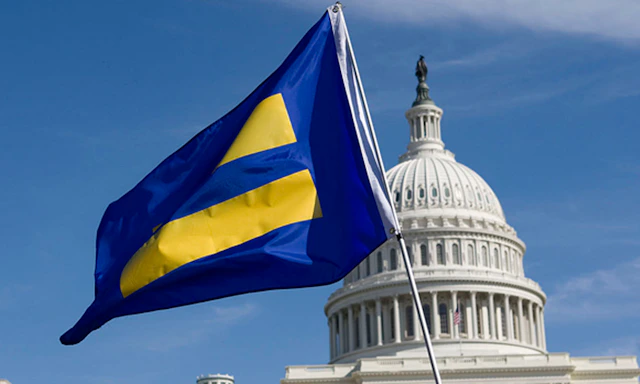
Federal Laws Impacting Domestic Partner Benefits

When discussing Domestic Partner Benefits, it is important to be aware of the numerous laws that provide, and often restrict, numerous benefits to people in certain types of relationship. Domestic Partner Benefits ensure the equitable provision of benefits to couples excluded under these laws.
Consolidated Omnibus Budget Reconciliation Act (COBRA)
Enacted by Congress in 1995, COBRA requires most employers to offer employees the opportunity to pay for their own continued health coverage for themselves, their spouses or former spouses and dependents in the event that their coverage ends due to events such as divorce or termination.
Family Medical Leave Act (FMLA)
Under this law, enacted by Congress in 1993, certain employers must grant employees up to 12 work weeks of unpaid leave during any 12-month period to care for parents (except in-laws), children or spouses in the event of a serious health condition, or for the birth or adoption of a child. Under the FMLA, the term "spouse" is defined as "a husband or wife as defined or recognized under state law for purposes of marriage in the state where the employee resides, including common-law marriage in states where it is recognized."
Employee Retirement Income Security Act (ERISA)
Enacted by Congress to protect private employee pension plans from fraud and mismanagement, this law covers most types of employee benefit plans, including pension and health plans. ERISA is complex and many questions remain unanswered. Courts have held that ERISA provisions supersede certain state-level health care initiatives where they have a significant effect on employer-sponsored health plans (this is often called the ERISA "pre-emption clause" contained in Section 514 of the law). In order to allow corporations operating in several states to have one set rather than potentially 50 different sets of rules governing their health plans, this law also exempts self-insured health plans (otherwise known as self-funded plans) from state laws. ERISA does not apply to certain plans, such as: federal, state or local government plans, including those of certain international organizations; religious or religious-affiliated plans; plans established by employee organizations such as unions; plans maintained solely to comply with state workers' compensation, unemployment compensation or disability insurance laws; plans maintained outside the United States primarily for non-resident aliens; and unfunded excess benefit plans, which are those that are maintained solely to provide benefits or contributions in excess of those allowable for tax-qualified plans.
Flexible Spending Accounts (FSA)
Known officially as Internal Revenue Code Section 125 cafeteria plans, these benefits allow employees to use pre-federal-tax dollars to pay for dependent care, as well as medical and dental services for themselves, spouses or qualifying dependents as defined under Code Section 152. Medical expenses of a non-dependent domestic partner are not eligible for tax-free reimbursement from an FSA, even if the employer offers partner health insurance benefits.
Health Savings Accounts (HSA)
As with an FSA, medical expenses incurred by or on behalf of domestic partners (and their children) that are not qualifying dependents under Internal Revenue Code Section 152 are not eligible for tax-free reimbursement from an HSA. Questions surrounding HSAs as they relate to domestic partners are complex and should be referred to an attorney.
See Also
- Pension Survivor Annuities (including QJSA and QPSA pension benefits)
- Rollover Option for Retirement Plans
- Hardship Withdrawal for Retirement Plans
- Topics:
- Workplace
- Laws & Legislation
Love conquers hate.


